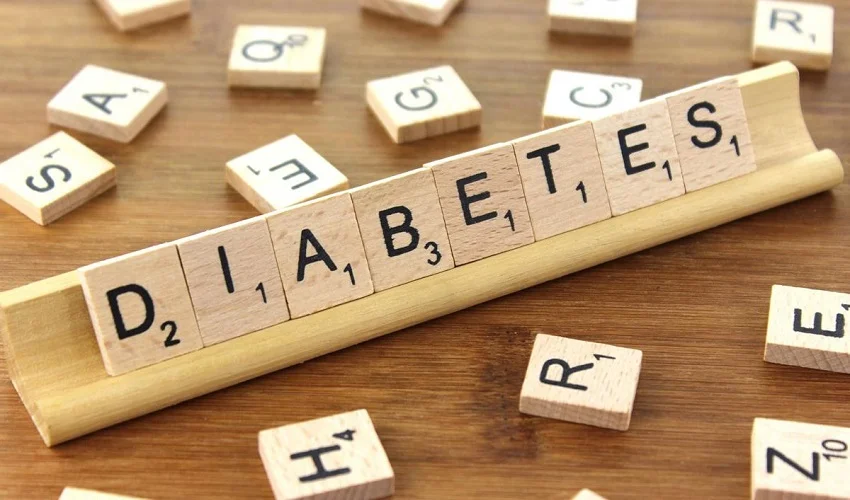What is diabetes remission?
Diabetes remission refers to the state in which a person with diabetes is able to achieve normal blood sugar levels and maintain them without the need for medication or insulin. It is a significant milestone in the management of diabetes as it signifies a reversal of the condition. Achieving diabetes remission often involves making lifestyle changes such as adopting a healthy diet, engaging in regular physical activity, and maintaining a healthy weight. While not everyone with diabetes may be able to achieve remission, it is a goal that can be pursued with the guidance of healthcare professionals and the implementation of a comprehensive treatment plan.
Causes of diabetes
There are several causes of diabetes, including genetic factors, lifestyle choices, and certain medical conditions. In some cases, a person may inherit a genetic predisposition to diabetes, making them more susceptible to developing the condition. Additionally, unhealthy lifestyle choices such as a sedentary lifestyle, poor diet, and excessive alcohol consumption can increase the risk of diabetes. Certain medical conditions, such as obesity and polycystic ovary syndrome (PCOS), can also contribute to the development of diabetes. It is important to understand these causes in order to prevent and manage diabetes effectively.
Benefits of diabetes remission
Diabetes remission offers a wide range of benefits for individuals struggling with this condition. Firstly, achieving remission can significantly improve overall health and well-being. By effectively managing blood sugar levels, individuals can reduce the risk of developing complications associated with diabetes, such as heart disease and kidney damage. Additionally, diabetes remission can lead to a decreased reliance on medication and insulin injections, resulting in financial savings and a greater sense of independence. Furthermore, individuals in remission may experience increased energy levels, improved mood, and better quality of life. Overall, the benefits of diabetes remission are numerous and can have a transformative impact on the lives of those affected by this condition.
Diagnosis and Monitoring
Diagnosing diabetes
Diagnosing diabetes is a crucial step in managing the condition effectively. It involves various tests and assessments to determine the presence and severity of diabetes. One of the most common tests is the fasting plasma glucose test, which measures the blood sugar level after fasting for at least eight hours. Another test is the oral glucose tolerance test, where the blood sugar level is measured before and after consuming a sugary drink. Additionally, the glycated hemoglobin (HbA1c) test provides an average blood sugar level over the past two to three months. These diagnostic tests help healthcare professionals to accurately diagnose diabetes and develop a personalized treatment plan for individuals.
Monitoring blood sugar levels
Monitoring blood sugar levels is an essential part of managing diabetes and achieving remission. Regular monitoring allows individuals to track their blood sugar levels throughout the day and make necessary adjustments to their diet, medication, and lifestyle. By closely monitoring blood sugar levels, individuals can identify patterns and trends, which can help them make informed decisions about their diabetes management. This can ultimately lead to better control of blood sugar levels and increase the chances of achieving diabetes remission. It is recommended to work closely with a healthcare professional to establish a monitoring routine and set target blood sugar levels for optimal management and remission.
Importance of regular check-ups
Regular check-ups are crucial for managing diabetes and ensuring the best possible outcomes. These check-ups allow healthcare professionals to monitor blood sugar levels, assess the effectiveness of treatment plans, and identify any potential complications. By attending regular check-ups, individuals with diabetes can stay informed about their condition, make necessary adjustments to their lifestyle or medication, and receive timely support and guidance. Additionally, regular check-ups provide an opportunity for healthcare providers to educate patients about self-care practices, such as healthy eating, exercise, and stress management, which are essential for diabetes management. Overall, the importance of regular check-ups cannot be overstated as they play a vital role in preventing and managing diabetes effectively.
Lifestyle Changes
Healthy eating habits
Maintaining healthy eating habits is crucial for managing and potentially reversing diabetes. A balanced diet that includes a variety of fruits, vegetables, whole grains, lean proteins, and healthy fats can help regulate blood sugar levels and improve overall health. It is important to limit the intake of sugary and processed foods, as they can cause spikes in blood sugar and contribute to weight gain. Additionally, portion control plays a significant role in managing diabetes. Eating smaller, more frequent meals throughout the day can help prevent blood sugar fluctuations and promote better glucose control. By adopting these healthy eating habits, individuals with diabetes can take control of their condition and work towards achieving remission.
Regular physical activity
Regular physical activity plays a crucial role in managing and reversing diabetes. Engaging in regular exercise helps to lower blood sugar levels, improve insulin sensitivity, and promote weight loss. It also helps to reduce the risk of cardiovascular complications associated with diabetes. Whether it’s walking, jogging, cycling, or any other form of physical activity, incorporating it into your daily routine can have significant benefits for diabetes remission. Aim for at least 150 minutes of moderate-intensity exercise per week, spread out over several days, to reap the full benefits of regular physical activity.
Stress management techniques
Stress management techniques play a crucial role in the journey towards diabetes remission. High levels of stress can negatively impact blood sugar levels and insulin resistance, making it more challenging to reverse the condition. Therefore, implementing effective stress management strategies is essential for individuals seeking to achieve diabetes remission. These techniques may include mindfulness meditation, regular exercise, deep breathing exercises, and engaging in activities that promote relaxation and stress reduction. By incorporating these techniques into daily life, individuals can better manage stress and improve their overall well-being, ultimately increasing their chances of successfully reversing diabetes.
Medication and Treatment Options
Oral medications
Oral medications are an important part of managing diabetes. They are commonly prescribed to help lower blood sugar levels and improve insulin sensitivity. These medications work by either increasing insulin production or reducing the amount of glucose produced by the liver. Some commonly prescribed oral medications for diabetes include metformin, sulfonylureas, and thiazolidinediones. It is important to note that oral medications are not a cure for diabetes, but they can help control the condition and prevent complications. It is essential to take these medications as prescribed and regularly monitor blood sugar levels to ensure optimal management of diabetes.
Insulin therapy
Insulin therapy is a crucial treatment option for individuals with diabetes. It involves the administration of insulin, a hormone that helps regulate blood sugar levels. This therapy is typically recommended for individuals with type 1 diabetes, as their bodies do not produce enough insulin. However, it can also be prescribed for individuals with type 2 diabetes who are unable to effectively manage their blood sugar levels through lifestyle changes alone. Insulin therapy plays a vital role in controlling blood sugar and preventing complications associated with diabetes. It helps to maintain stable blood sugar levels, reduces the risk of hypoglycemia, and improves overall quality of life for individuals with diabetes.
Other treatment options
There are several other treatment options available for diabetes remission. These options include lifestyle changes, such as adopting a healthy diet and engaging in regular exercise. Additionally, medication and insulin therapy may be prescribed to help manage blood sugar levels. Some individuals may also benefit from weight loss surgery, which can help improve insulin sensitivity and promote weight loss. It is important to consult with a healthcare professional to determine the most appropriate treatment plan for achieving diabetes remission.
Support and Education
Joining support groups
Joining support groups can be incredibly beneficial for individuals with diabetes who are seeking to reverse the condition. These groups provide a supportive and understanding community where individuals can share their experiences, challenges, and successes. By connecting with others who are on a similar journey, individuals can gain valuable insights, tips, and encouragement. Support groups also offer a platform for learning about new treatment options, lifestyle changes, and strategies for managing diabetes effectively. Additionally, being part of a support group can help individuals feel less alone and more motivated to stay committed to their diabetes reversal goals. Overall, joining a support group can be a powerful tool in the journey towards diabetes remission.
Educational resources
There are numerous educational resources available for individuals seeking information on diabetes remission. Online platforms, such as websites and social media groups, provide a wealth of knowledge and support from experts and fellow individuals who have successfully reversed their condition. Additionally, books and e-books written by medical professionals and researchers offer comprehensive guidance on the various strategies and lifestyle changes that can contribute to diabetes remission. Attending workshops, seminars, and webinars conducted by healthcare professionals is another valuable way to gain knowledge and receive personalized advice on reversing diabetes. With these educational resources, individuals can empower themselves with the information and tools necessary to achieve diabetes remission.
Working with healthcare professionals
When it comes to managing diabetes and working towards remission, it is crucial to have a strong partnership with healthcare professionals. These professionals, including doctors, nurses, and dietitians, play a vital role in providing guidance, support, and expertise throughout the journey. They can help create personalized treatment plans, monitor progress, and make necessary adjustments to medications, diet, and lifestyle. Regular check-ups and consultations with healthcare professionals can ensure that individuals are on the right track towards reversing their condition and achieving diabetes remission.
Achieving diabetes remission is possible
Achieving diabetes remission is possible through a combination of lifestyle changes and medical interventions. By adopting a healthy diet and engaging in regular physical activity, individuals with diabetes can improve their blood sugar control and reduce their reliance on medication. Additionally, medical treatments such as bariatric surgery or medication adjustments may be recommended by healthcare professionals to further support diabetes remission. It is important to note that achieving diabetes remission is a gradual process that requires dedication and consistent effort. With the right approach and support, individuals with diabetes can successfully reverse the condition and improve their overall health and well-being.
Importance of ongoing management
The importance of ongoing management in diabetes remission cannot be overstated. While achieving remission is a significant milestone, it is crucial to understand that diabetes is a chronic condition that requires continuous monitoring and care. Ongoing management involves maintaining a healthy lifestyle, including regular exercise, a balanced diet, and regular check-ups with healthcare professionals. It also includes monitoring blood sugar levels, taking prescribed medications, and making necessary adjustments to treatment plans. By prioritizing ongoing management, individuals can reduce the risk of diabetes complications, maintain stable blood sugar levels, and improve overall well-being. Therefore, it is essential for individuals who have achieved diabetes remission to remain committed to ongoing management practices to ensure long-term success and a better quality of life.
Empowering individuals to take control of their health
In today’s fast-paced and stressful world, it can be easy for individuals to neglect their health. However, when it comes to managing and reversing conditions like diabetes, empowering individuals to take control of their health is crucial. By providing education, resources, and support, we can empower individuals to make informed decisions about their lifestyle, diet, and exercise habits. This not only helps them manage their diabetes effectively but also increases their overall well-being and quality of life. With the right tools and guidance, individuals can regain control over their health and achieve diabetes remission.




